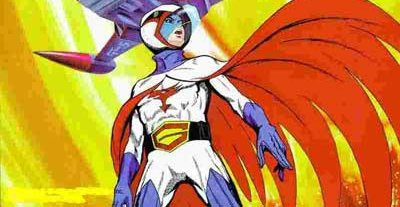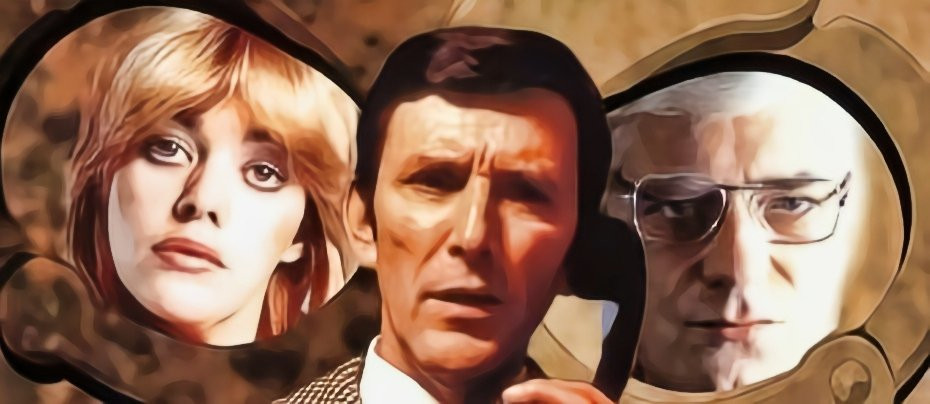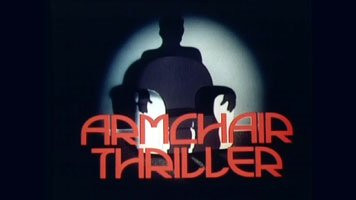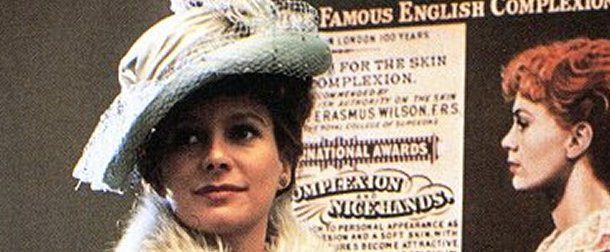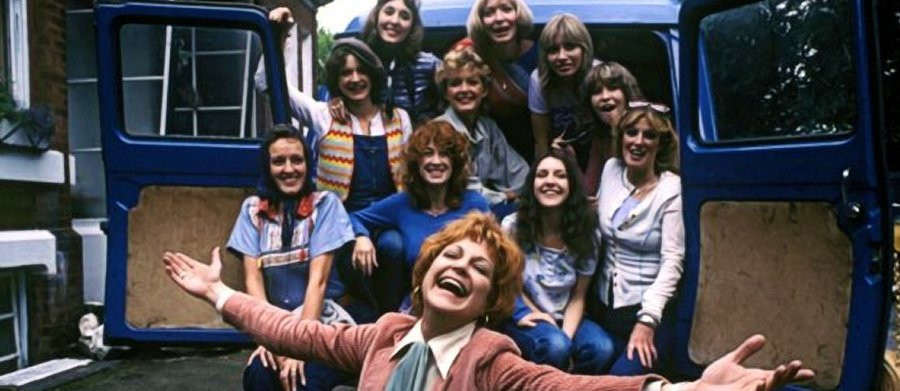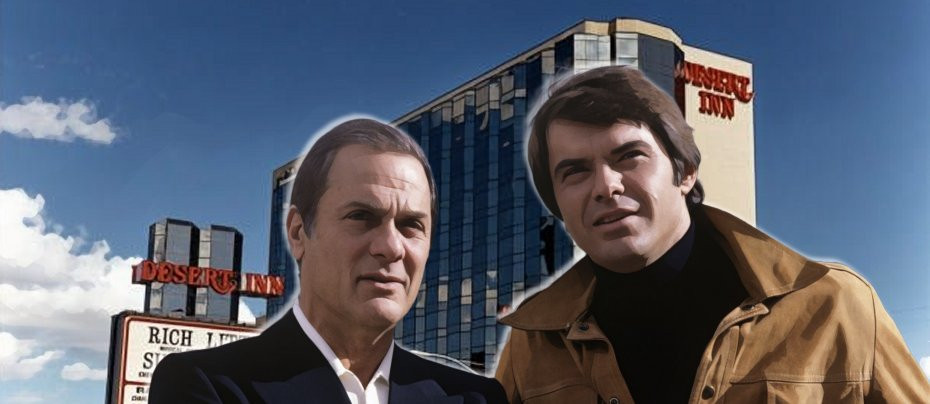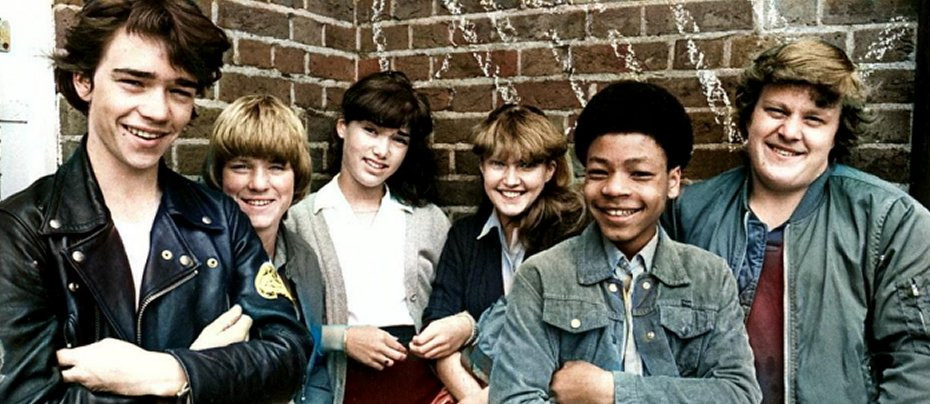
Grange Hill
1978 - United KingdomCrossing five generations of children and courting controversy at almost every twist and turn of its storylines, Grange Hill, hailed in some quarters as the most important children's television series of all time, whilst damned elsewhere as the most damaging influence on our youngsters - and a prime example of everything that is wrong with television, is the best known and most significant children's television drama series ever to appear on our TV screens.
Grange Hill began life in 1975 when ATV comedy writer Phil Redmond, who had just finished contributing scripts for season three of the children's sitcom The Kids from 47A, approached the various Independent Television companies with an idea for a series set in a modern comprehensive school. Redmond tried unsuccessfully for a year to get anyone interested, then in 1976 he met BBC Children's Drama executive Anna Home who allegedly had been carrying round a folder of rejected storylines in a file marked "School".
Home decided to place her faith in Redmond's idea with a trial run of 9 episodes and the series finally reached our screens in 1978. But not everyone involved on the programme was confident of its potential. The first series director, Colin Cant, thought the scripts weak and was concerned that children would not want to come home from school to watch a heavy-handed drama about the same institution they'd just 'escaped' from. He was wrong. Although the first series didn't have much of a thread and each episode could be viewed almost as a stand-alone plot, its young audience soon became involved in the fictional lives of Grange Hill's pupils. As in real school these pupils came from different backgrounds, and this was clearly illustrated in the first episode as viewers were introduced to each character as they made their way to Grange Hill Comprehensive and before they'd even passed through its gates. And as any child is normally introduced to school as a first-year student so the viewers were introduced to 'Grange Hill' through the eyes of the pupils from this age group.
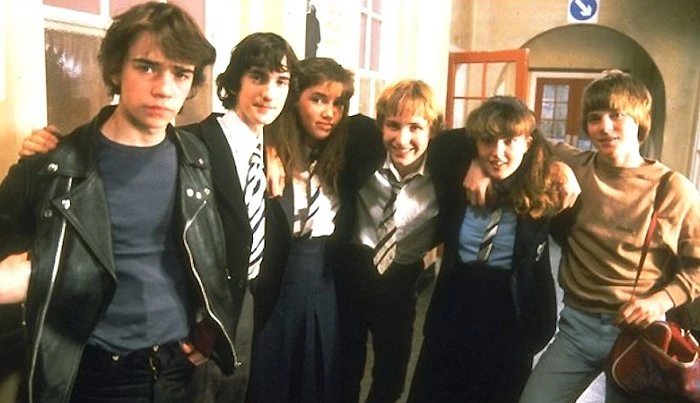
From the off Grange Hill went for sensitive, true-life situations, its first 'issue' being one of racial prejudice as young Benny (Terry Sue Patt) is referred to by one student as a 'golly'. Trisha (Michelle Herbert) is quick to defend Benny and later, in a quiet moment, the two discuss the problem. Trisha tells her friend in all sincerity that she is outraged by this behaviour and anyway, Benny can't help it if he's a 'nig-nog'. It may have not been to some viewers liking but it was in fact a prime example what was going on in every multi-racial school playground in the land.
Grange Hill was set to become an education for many adults, too. Some issues were presented not as the fault of other school children, either, but as the fault of the education system itself. One West Indian youngster who came from a poor family became the target of school bullying, mainly because his parents could not afford to buy him a school uniform. Instead of supporting the child the school only compounded his problems further by excluding him from the school football team, in spite of his obvious talent, because he could not afford football boots. This was the real world as had not previously been portrayed in many adult dramas let alone in a children's television series. Some of the children were shown as confrontational, some rebellious and some just plain cheeky, as in the case of one of Grange Hill's best remembered pupils, Tucker (Todd Carty). But they almost always received a punishment to fit the crime, be it expulsion, suspension, or just a good old caning, as these were the days when teachers were still allowed to dole out physical discipline to children, even the females.
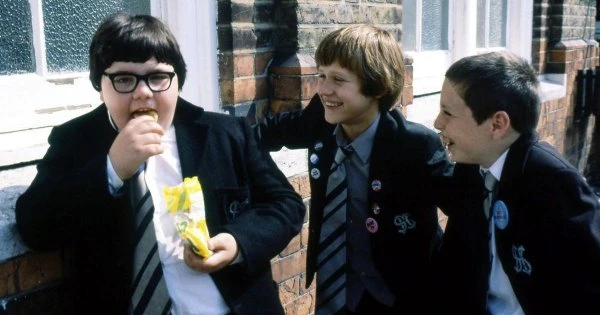
By the end of that first run of nine episodes Grange Hill found itself already the subject of controversy. One irate viewer wrote to the BBC to say that she was disgusted by the series...'This is not entertainment' she wrote, '...but a glamorisation of hooliganism and the abominable attitude of children to their teachers'. Undaunted by the criticism heaped on season one, a second was commissioned by the BBC and Grange Hill returned in an extended two episode per week format. If viewers thought that the show's content would be toned down - they were mistaken. Season two involved a teacher being suspended for striking a student, pupils smoking, arrested for shoplifting, rioting, and vandalising school property. Although the BBC were quick to point out that no one in the series ever benefited from unruly behaviour, Phil Redmond was called to a meeting of the Corporation's executives and told to 'tone it down.'
Subjects covered in subsequent series included dyslexia and school bullying, but by far the most controversial subject was one character's addiction to heroin. When amiable Zammo McQuire (Lee MacDonald) became hooked on the drug its consequences were handled in an adult and not patronising way. The message was quite clear and was further endorsed by the cast releasing an anti-drugs record called 'Just Say No' which reached number 5 in the hit parade in April 1986. The plot and its presentation was commended in the House of Commons and many of the cast were invited to the White House to meet President Ronald Reagan who wished to recognise their good work on this issue. Although many fans felt that later seasons appeared to be a 'watered down' version of previous ones the writers (Redmond having left at the end of series four) were still confident enough to tackle subjects such as teenage pregnancy, AIDS, lesbianism and the harassment of a gay teacher. The storylines also moved away from the confines of the school and many pupils home and social lives were investigated further.
As they grew up many of the young cast furthered their careers in other television soaps and dramas and in particular, Todd Carty, Susan Tully, Letitia Dean and Michelle Gayle walked the cobblestone streets of Albert Square in the hit soap EastEnders. Carty also starred in a spin-off series entitled Tucker's Luck. Phil Redmond devised another soap opera; the Liverpool based Brookside, while in his absence his ongoing story of school life attracted many notable writers including Oscar winner Anthony Minghella, who was the series script-editor from 1983 - 88.
After a quarter of a century, Grange Hill was still going strong and rightly so. In a television climate that appeared to be devoid of good children's drama Grange Hill was still a byword for quality. In 2003 Phil Redmond took over the series once more. In early 2006, it was announced a Grange Hill film was to be released in late 2007 focusing on the lives of former pupils, but before this appeared the BBC announced that the series was to be axed. The announcement was made by CBBC controller Anne Gilchrist just two days before the show's official 30th birthday. Grange Hill ended on Monday 15 September 2008 with a further return appearance by Todd Carty. There was no spectacular conclusion; characters simply walked out of the gates after their prom and the school never returned for another term.
Seen this show? How do you rate it?
Seen this show? How do you rate it?
Published on December 19th, 2018. Written by Laurence Marcus (October 11, 2003 - Updated 2009) for Television Heaven.


